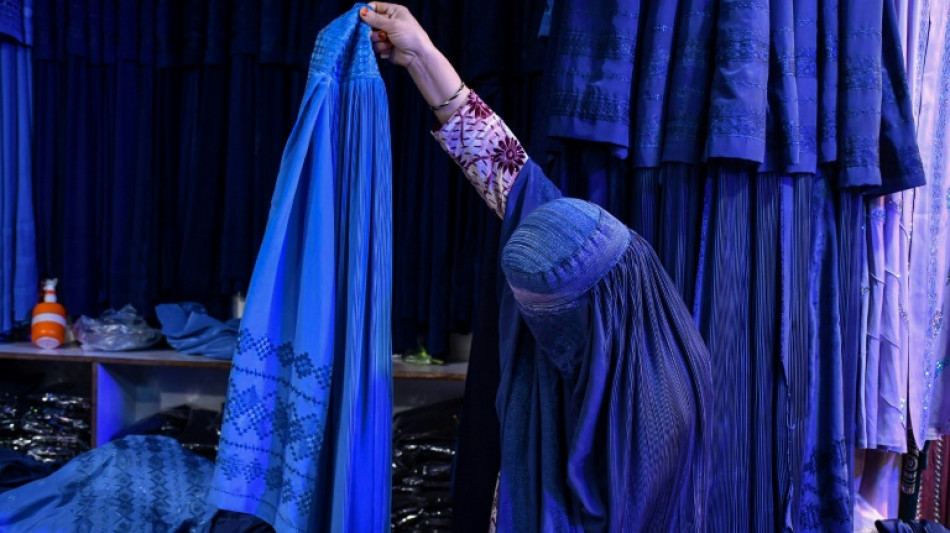
-
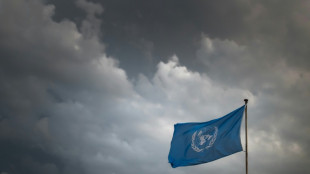 Record number of aid workers killed in 2024, UN says
Record number of aid workers killed in 2024, UN says
-
Klopp 'decisive' in move to Leipzig, says Bakayoko

-
 UK drops demand for access to Apple user data
UK drops demand for access to Apple user data
-
'Historic' final a record sell-out, says Rugby women's World Cup chief

-
 Verma snubbed as India name Women's World Cup squad
Verma snubbed as India name Women's World Cup squad
-
Markram, Maharaj lead South Africa to crushing win in ODI series-opener

-
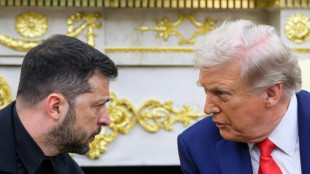 Russia says peace deal must ensure its 'security' amid Ukraine talks
Russia says peace deal must ensure its 'security' amid Ukraine talks
-
Death toll from northern Pakistan monsoon floods rises to almost 400
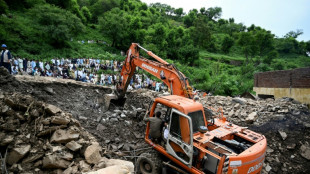
-
 Pollution hotspots at England's most famous lake need 'urgent' action
Pollution hotspots at England's most famous lake need 'urgent' action
-
Air Canada flight attendants end strike after reaching 'tentative' deal

-
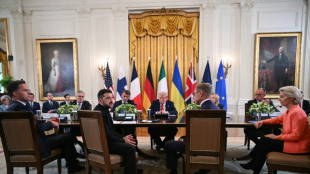 Stock markets cautious with eyes on Ukraine talks
Stock markets cautious with eyes on Ukraine talks
-
Azam, Rizwan demoted in contracts as Pakistan scrap A category
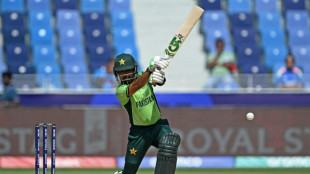
-
 300-year-old violin to star at UK music festival
300-year-old violin to star at UK music festival
-
Ukraine allies meet with hopes of peace talks breakthrough
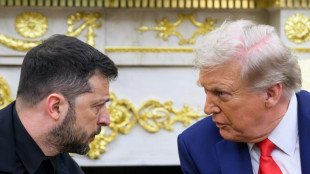
-
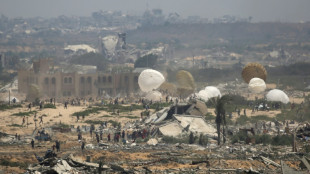 Mediators await Israeli response to new truce offer
Mediators await Israeli response to new truce offer
-
Markram leads South Africa to 296-8 in ODI series-opener

-
 Brazil asks Meta to remove chatbots that 'eroticize' children
Brazil asks Meta to remove chatbots that 'eroticize' children
-
Markets cautious after Zelensky-Trump talks

-
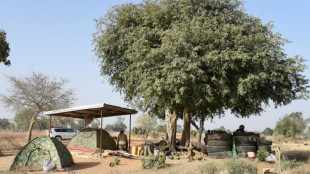 Togo tight-lipped as Burkina jihadists infiltrate north
Togo tight-lipped as Burkina jihadists infiltrate north
-
Survivors claw through rubble after deadly Pakistan cloudburst
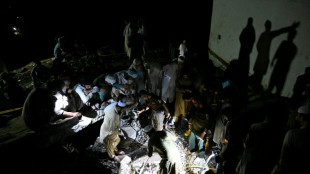
-
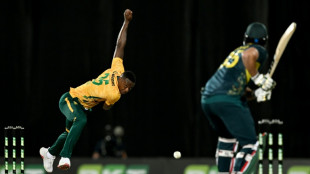 South Africa quick Rabada out of Australia ODI series with injury
South Africa quick Rabada out of Australia ODI series with injury
-
Air Canada flight attendants vow to defy back-to-work order as strike talks resume

-
 'Call of Duty' to fire starting gun at Gamescom trade show
'Call of Duty' to fire starting gun at Gamescom trade show
-
UN says record 383 aid workers killed in 2024
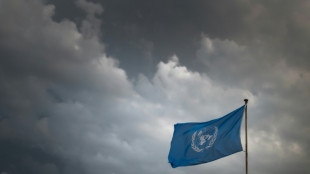
-
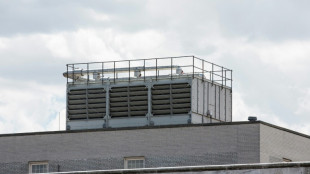 NYC Legionnaires' disease outbreak kills 5
NYC Legionnaires' disease outbreak kills 5
-
Asian markets cautious after Zelensky-Trump talks

-
 Home hero Piastri to have Australian F1 grandstand named after him
Home hero Piastri to have Australian F1 grandstand named after him
-
Maduro says mobilizing millions of militia after US 'threats'
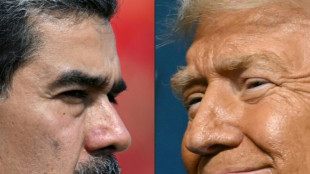
-
 HK scientist puts hope in nest boxes to save endangered cockatoos
HK scientist puts hope in nest boxes to save endangered cockatoos
-
Swiatek beats Paolini to clinch WTA Cincinnati Open title

-
 Brazil's top court rules US laws do not apply to its territory
Brazil's top court rules US laws do not apply to its territory
-
Suits you: 'Fabulous' Zelensky outfit wows Trump
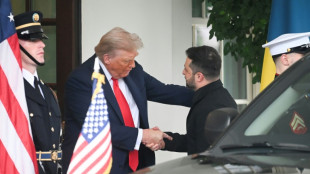
-
 Pro-Trump outlet to pay $67 mn in voting defamation case
Pro-Trump outlet to pay $67 mn in voting defamation case
-
Downton Abbey fans pay homage to 'beautiful' props before finale
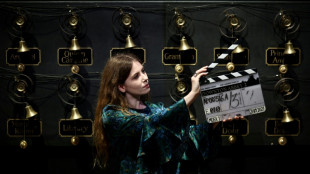
-
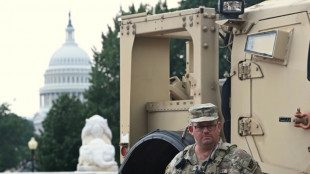 Republican-led states sending hundreds of troops to US capital
Republican-led states sending hundreds of troops to US capital
-
Putin and Zelensky set for peace summit after Trump talks
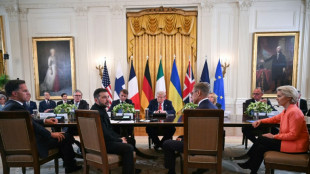
-
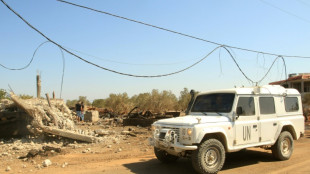 UN debates future withdrawal of Lebanon peacekeeping force
UN debates future withdrawal of Lebanon peacekeeping force
-
Trump says arranging Putin-Zelensky peace summit
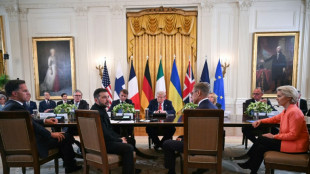
-
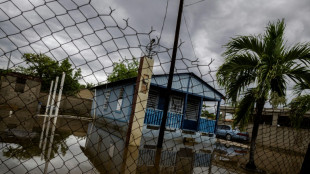 Hurricane Erin douses Caribbean, menaces US coast
Hurricane Erin douses Caribbean, menaces US coast
-
Sinner vows to play US Open after Cincy retirement

-
 'Ketamine Queen' dealer to plead guilty over Matthew Perry death
'Ketamine Queen' dealer to plead guilty over Matthew Perry death
-
Leeds beat Everton for perfect start to Premier League return

-
 'Ketamine Queen' to plead guilty over drugs that killed Matthew Perry
'Ketamine Queen' to plead guilty over drugs that killed Matthew Perry
-
Guirassy sends struggling Dortmund past Essen in German Cup

-
 Stocks under pressure as Zelensky-Trump talks underway
Stocks under pressure as Zelensky-Trump talks underway
-
Alcaraz wins Cincinnati Open as Sinner retires

-
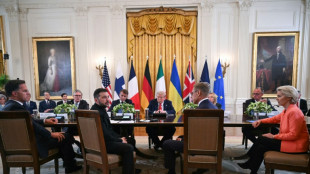 Trump floats Ukraine security pledges in talks with Zelensky and Europeans
Trump floats Ukraine security pledges in talks with Zelensky and Europeans
-
Doak joins Bournemouth as Liverpool exodus grows

-
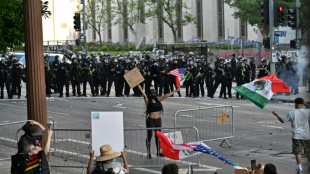 Excessive force used against LA protesters: rights group
Excessive force used against LA protesters: rights group
-
Panama hopes to secure return of US banana giant Chiquita


New generation of Afghan women shift from burqa
Young, urban women in Afghanistan are increasingly ditching the all-enveloping blue burqa with a face mesh that has become a symbol of the Taliban's oppression of women.
Since their return to power in 2021, the Taliban have imposed an ultra-strict vision of Islamic law, modelled on their previous rule from 1996 to 2001.
But while women must still have their bodies and faces covered, restrictions from the feared religious police do not specifically mention the burqa.
So young women are instead following fashions seen in many Gulf nations.
Many prefer a flowing abaya robe, worn with a hijab headscarf and often a face covering as well -- sometimes a medical mask, or a Saudi-style cloth niqab veil that exposes only the eyes.
"The new generation would never accept wearing a burqa, because of the design and colour," said 23-year-old Tahmina Adel in the capital Kabul.
With social media, "everybody follows the trends", Adel added, who was forced to quit her economics degree because of the Taliban government's ban on women's education.
"I prefer wearing an abaya because I am comfortable in that," she said.
Young women in Kabul and the northern city of Mazar-i-Sharif said that abayas and headscarves offer more freedom of expression than burqas, with a variation in colour, material and pattern.
"Only elders wear a burqa," said Razia Khaliq, as she embroidered one at a workshop in Mazar-i-Sharif.
Khaliq began wearing the billowing head-to-toe burqa aged 13, like her mother and grandmother before her.
But her daughter, in her 20s, prefers the abaya.
"Young people wear the abaya because it is more comfortable," Khaliq said.
- 'Stifling' -
The burqa has long roots in Afghanistan.
It was strictly enforced during the first Taliban government rule of Afghanistan, when women were lashed for failing to wear one in public.
But the abaya and hijab headscarf combination grew in popularity during the time of the foreign-backed government.
When the Taliban recaptured Kabul in 2021, they had promised to be more flexible than during their first rule, when women were deprived of almost all their rights.
They have gradually erased Afghan women from public space, imposing what the United Nations has called a "gender apartheid".
They outlawed the loose headscarves commonly worn by urban women.
Billboards were erected ordering women to once again wear the burqa -- or an abaya, headscarf and a face covering.
A law in August confirmed restrictions imposed on men and women by the religious police.
It stipulates that, while women can go out "in case of necessity", they must cover up.
"Whether a burqa or hijab, there is no difference," said Saif ul Islam Khyber, spokesman for the morality police, known officially as the Ministry for the Propagation of Virtue and the Prevention of Vice.
Nasima, in her 40s, insisted that "showing your face is a sin".
But she admitted to sometimes wearing an abaya and headscarf to free her nose and mouth from the "stifling" burqa.
- 'Very strange' -
Niha, 22, said she was reprimanded for not wearing a burqa in public buildings, which are guarded by the Taliban authority's security forces.
It is common to be asked to readjust the headscarf, or ordered to add a medical mask.
"As soon as we enter offices, we are mistreated," said Niha, who did not give her surname.
Hayatullah Rafiqi, a specialist in Pashtun culture, said the burqa was "strictly imposed" under the first Taliban government -- when some women were "whipped if they did not wear it" -- but that "today it is worn less."
Burqas vary only in colour according to province, from blue to light brown, and green to pink.
Gul Mohammad has been selling burqas in Kabul for 40 years, and said many now come from China -- made of nylon rather than cotton, making them cheaper and stronger but less breathable.
"The Chinese burqa is very cold in winter, and it is like fire in summer," said Gul. "This makes the women sweat."
For Sabrina, 23, from the Taliban's spiritual cradle of Kandahar, life under a burqa is fraught with pitfalls.
She is regularly lectured if she does not wear it.
The first time she wore it was after the Taliban government seized back control in 2021, and it was not her choice.
"I couldn't see my way, I didn't know if I was going right or left," she said. "It was very strange."
A.Suleiman--SF-PST
